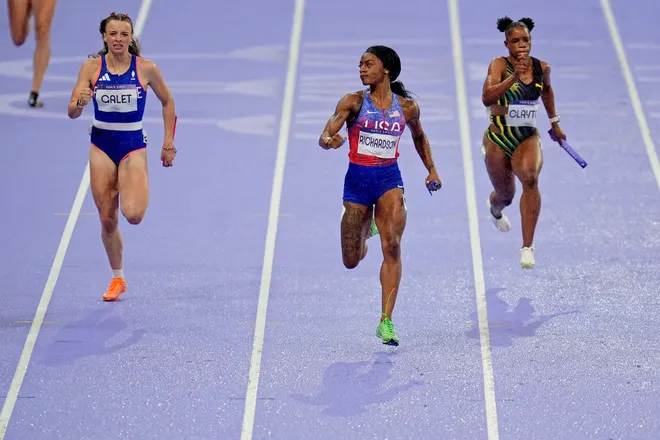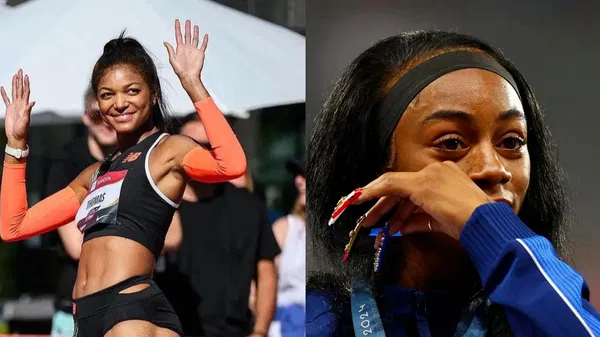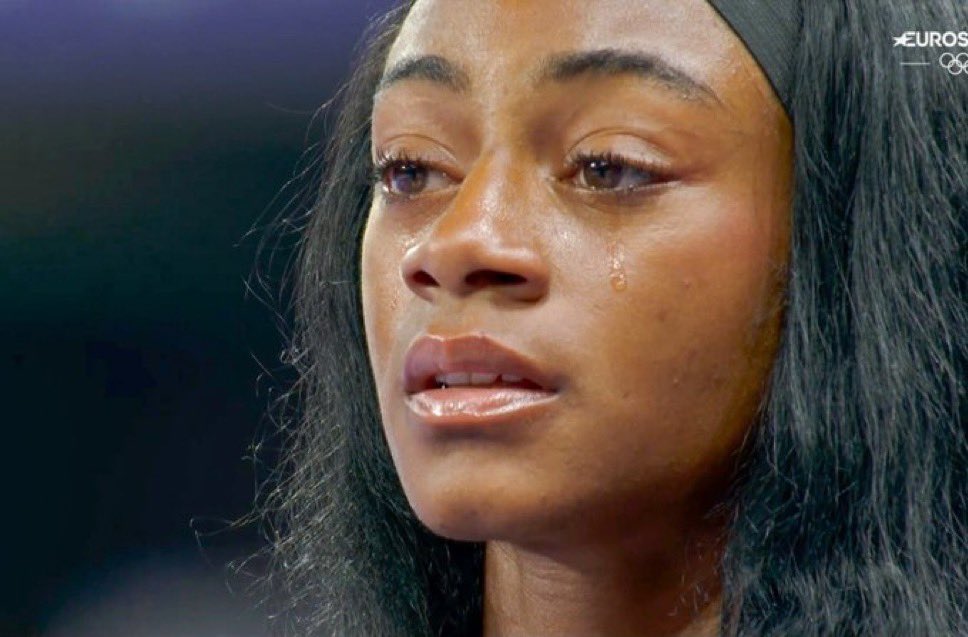Sha’Carri Richardson wins gold in Paris, but her Olympics story remains a mystery
France’s Saint-DENIS With Sha’Carri Richardson, a look might be worth a thousand words. It had best be, because there wasn’t much more to say about one of the most fascinating Americans at the Olympics in Paris.
One might assume that Richardson’s anchor leg in the 4×100 relay, which resulted in a gold medal for Team USA and featured an iconic 10.09-second sprint to victory, would rank among her career’s greatest moments. The 24-year-old turned her head to the right and watched as Great Britain’s Daryll Neita realized she had been passed.
Perhaps Richardson’s Olympic experience wasn’t what she had in mind when she traveled to Paris with the expectation of winning the 100 meters, only to finish second to Julien Alfred of St. Lucia. It’s the one she received, though.
Did winning her first gold medal bring her joy? Was there a sense of relief? When Gabby Thomas handed her the baton with a few rivals still to catch, how much pressure did she feel? Does she think back on her first Olympics as a success after she leaves Paris, or does it make her want more?
From one of Team USA’s greatest stars, whose visage was featured in countless TV commercials this summer, these are kind of the standard things you would want to know.
Olympic medals for 2024: Who has won the most? Join us as we monitor the medal standings in each sport.
Rather, the mystery remains unsolved.
“The moment I will recount is realizing that it was an incredible feeling for all of us when we won as USA ladies,” she remarked. “That provides the response to your query.”
That was the end of it. Richardson even walked off to the side, a step behind her teammates, as if she didn’t want to be spotted, during the brief interview with the four gold medalists. Her near-silence appeared to make a statement in and of itself, especially for someone as loud and aggressive in her style, fingernails, and even facial expressions on the track.
It’s just difficult to pinpoint the actual cause of it.
Richardson hasn’t mentioned much about her performances before leaving Paris. Upon finishing second in the 100 meters as the favorite, she failed to stop in the mixed zone, where media ask questions of athletes as they exit the field, and she failed to appear at the press conference that all three medalists are expected to attend.
Everything was purely fictitious: Did she really look as anxious as she did in the final seconds before the race? Did stress and anxiety play a part in her bad first-round performance, which all but destroyed her chances? How did she go about digesting the outcome over the next few days? Did her relay performance serve as any sort of atonement?
Not every athlete feels at ease in the public eye. Alright, it makes sense. And in the three years after the marijuana test that disqualified her from the Tokyo Olympics, Richardson has experienced a lot. It makes sense why she might be reluctant to reveal more personal information to the public than is necessary.





